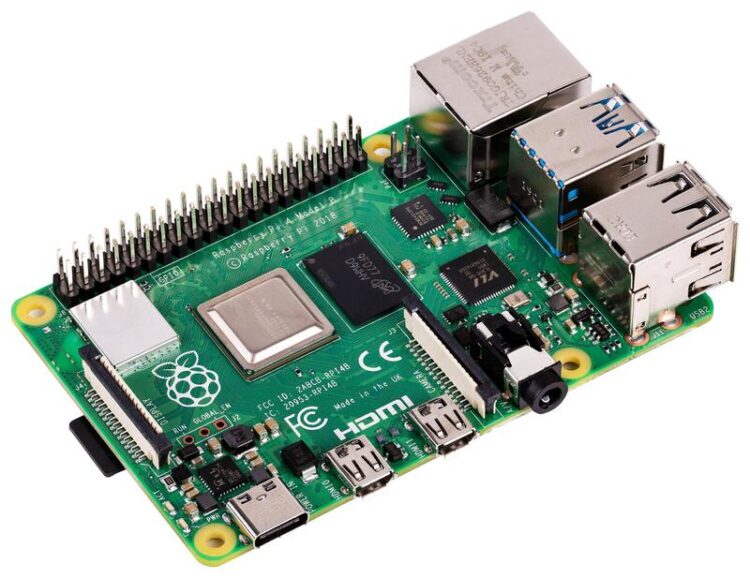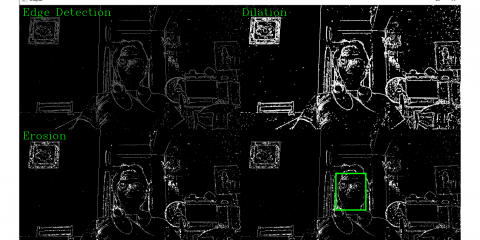Small Board, Big Ideas: The Versatility of Raspberry Pi – One of the most famous and widely accessible single-board computers is the Raspberry Pi. Built by the Raspberry Pi Foundation, the Raspberry Pi has become identical to Single-board computers. It provides a variety of models, each with different particulars and abilities, furnishing to various requirements and budgets.
Along with Raspberry Pi, there are many different players in the single-board computer world. Various other choices exist, each with its extraordinary features and advantages.
The versatility of Raspberry Pi opens up a universe of possibilities. They are accessible for educational resolution, teaching programming and electronics theories in an immediate manner. SBCs also vastly engage in home automation systems, changing simple houses into smart homes. Their precise size and low power utilisation make them perfect for projects such as media centres, retro gaming consoles, and even weather stations. The probabilities truly are infinite.
If you are searching for a general-purpose SBC with a wide community and considerable support, the Raspberry Pi is a wonderful choice. It’s reasonable and budget-friendly, a vast variety of available accessories and a wealth of online resources make it a popular choice among beginners and experts alike.
About Raspberry Pi
Welcome on board as you take the first step towards discovering the infinite possibilities this single-board computer has to provide. Whether you are a tech addict, a hobbyist, or a longing programmer, Raspberry Pi is a wonderful choice for anyone looking to play around with hardware and commence the journey on exciting projects. In this blog, Circuitrocks will assist you through the important steps on how to choose the Raspberry Pi model, from choosing the hardware to putting in place the operating system and getting to know different project strategies.
1. Selecting the Right Raspberry Pi Model: The Raspberry Pi provides different models, each having its particulars and abilities. Think about your needs and budget to understand the best choice for you.
2. Assembling the Hardware: Once you purchase your Raspberry Pi board, it’s time to assemble the important components.
The Versatility of Raspberry Pi – Advantages
There are plenty of benefits to using Raspberry Pi in business. As a small computer, Pis consist of all the essential components to interact with the outside world through the Internet (WiFi, Bluetooth, and Ethernet) and process various types of data which involves video and audio. The recent models comprise up to 4GB RAM and a robust processor. It makes Raspberry Pi a wonderful option for a small data processing centre.
Here are various other benefits of Pis that prove the versatility of this board:
- Availability and usability. Raspberry is a good-to-go embedded board you can conveniently buy online. You are required to select the model that best mirrors your project needs.
- Capabilities and scalability. The updated models are created to work with different IoT connectivity technologies and have GPIOs, SD cards, and UBS choices. So a ready-made board may be enough for a simple project. And even if not, Raspberry Pis are extensible using extra modules — HAT (hardware on top). It allows great customization opportunities.
- Programming. Common programming languages like Python and C/С++ are mostly used to design a connected system depending on Pi. Therefore, based on what Raspberry Pi is utilised for, it generally won’t need to learn a different programming language for coding.
- Low price. Pi boards differ in price from $5 to $55 based on model configuration and memory capacity.
- Low power consumption. Significantly, Raspberry Pi is a low-power computer that makes it perfect for Internet of Things software development.
Points to Remember While Choosing Raspberry Pi
Despite all the benefits, this hardware has various limitations and components that need to be thought about before choosing Raspberry Pi for business applications.
- Board design. Every board consists of its design, dimensions and parameters. Since its self-sufficient hardware, this is what you will have to deal with. It’s possible that the board with just the appropriate utility won’t suit your needs for the shape or size. Or it may have additional connections you don’t require and will have to put out of sight.
- Power source. Raspberry Pis are normally powered by USB or GPIO connectors. It can be an issue in a chaotic environment with a high vibration rate. For a data processing unit, the intervened power supply may lead to data loss.
- Availability commitment. Mind the availability commitment for the model you thinking of using. According to Raspberry Pi’s business model and principles, the previous models from 2 to 3+ will stay here for a while and the updated 4B model will be encouraged at least till 2026. So it all comes down to the longevity of your system is expected to have.
FAQs on Small Board, Big Ideas: The Versatility of Raspberry Pi
Question1. How many types of Raspberry Pi models are there?
Answer. There have been various generations of Raspberry Pi. The forms are- the Raspberry Pi A, the more robust Raspberry Pi B, and the convenient and much smaller Raspberry Pi Zero. In addition, there is the Raspberry Pi 400, which is a Raspberry Pi 4B compiled into a keyboard, and the Raspberry Pi Compute Module, which is majorly utilised in industrial applications.
Question2. Do I need to have a piece of programming knowledge?
Answer. You don’t need to have any programming knowledge when want to work with the Raspberry Pi, and it can be utilised like any other (Desktop) computer. But to achieve the most out of your Raspberry Pi, we suggest some knowledge of working with the command line, and possibly Python, as well as an interest in acknowledging more about computing and electronics.





